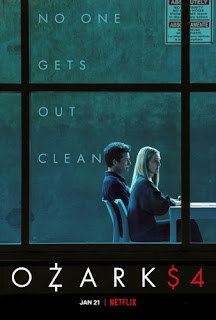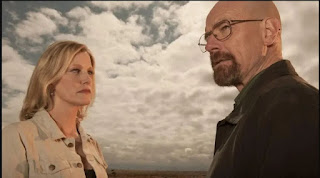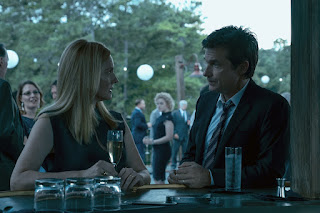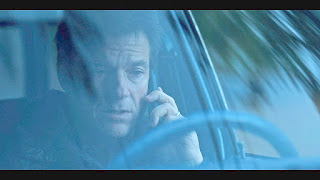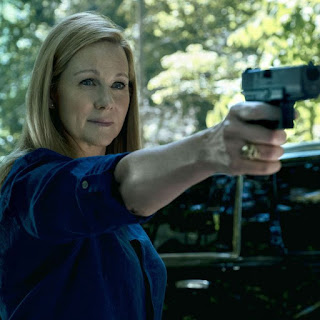The Bipolar Boom: "In the United States, people with depression, bipolar, and schizophrenia are losing twelve to twenty years in life expectancy compared to people not in the mental health system.” Robert Post added: “Right now, fifty years after the advent of antidepressant drugs, we still don’t really know how to treat bipolar depression. We need new treatment algorithms that aren’t just made up.” Although “bipolar” illness is a diagnosis of recent origin, first showing up in the APA’s Diagnostic and Statistical Manual in 1980 (DSM-III), medical texts dating back to Hippocrates contain descriptions of patients suffering from alternating episodes of mania and melancholia. Jules Baillarger, dubbed this illness la folie à double forme. In his 1969 book, Manic Depressive Illness, George Winokur at Washington University in St. Louis treated unipolar depression and bipolar illness as separate entities."

"Today, according to the NIMH, bipolar illness affects one in every forty adults in the United States, and so, before we review the outcomes literature for this disorder, we need to try to understand this astonishing increase in its prevalence. Psychotropic drugs—both legal and illegal—have helped fuel the bipolar boom. In 2003, former NIMH director Lewis Judd and others argued that many people suffer “subthreshold” symptoms of depression and mania, and thus could be diagnosed with “bipolar spectrum disorder.” There was now bipolar I, bipolar II, and a “bipolarity intermediate between bipolar disorder and normality,” one in every four adults now falls into the catchall bipolar bin, this once-rare illness apparently striking almost as frequently as the common cold. Four million American adults under sixty-five years old are on SSI or SSDI today because they are disabled by mental illness. One in every fifteen young adults (eighteen to twenty-six years old) is “functionally impaired” by mental illness." —"Anatomy of an Epidemic: Magic Bullets, Psychiatric Drugs, and the Astonishing Rise of Mental Illness in America" (2010) by Robert Whitaker.

Soderbergh wanted The Informant! to go down the rabbit hole of Whitacre's mystifying mind. As Damon embodies him, he seems the sunniest symbol of corporate America and middle America: smart, pleasant, undemonstrative, with an eccentric wife (Melanie Lynskey) and two kids. But we get the earliest glimpses of Mark's gift for fooling people, and perhaps himself, in the movie's voiceover, in which Mark wanders blithely into logical cul-de-sacs and exotic trivia: The whole movie is Mark's brainscan. It's shot and acted in a bland style that, you only eventually realize, is deeply askew, and darkly, corrosively satirical. What game, exactly, is Whitacre playing? Whose side is he on? Damon is superb as a portentously smart guy who comes across as rather dim. Is Whitacre a knight in shining armor, a compulsive liar, playing secret agent or plagued by mental illness?

Or is he all of the above? With his earnest demeanor and straightforward delivery, Damon convincingly obfuscates Whitacre's true motives. We don't question his veracity as much as try to muddle through it. A big part of the fun is piecing together the puzzle that is Whitacre. In a strange but fascinating touch, Damon voices his inner monologue. Often, his thoughts — an inane stream of consciousness — seem wholly unrelated to what's going on around him, which adds an intriguing absurdist quality to an already quirky tale. We come to realize Whitacre is the least reliable narrator in an already slippery setting. Source: time.com

Matt Damon famously had a 3 year relationship with Winona Ryder and even Courtney Love in an occasion was jokingly contemplating to reach out to Damon. The Hole singer labeled Damon as "old school". Did Damon's marriage to Luciana Bozán develop from love at first sight? "I don't know if that's me revising the initial memory, imbuing it with all the subsequent emotion that I felt and all the experiences that we've had since then," Damon told Macleans Canada magazine in 2011. "I feel like if I'm honest, that there was a halo of light around her and I absolutely knew that moment had changed my life before I even spoke to her, but I don't know whether or not that's revisionism." However their relationship began, it's clear that they were meant to be together! Source: www.macleans.ca

A recent study published in the journal Psychological Reports (December 7, 2021) found out that traditional gender norms continue in dating culture for Millennials, with men almost always paying the whole bill on first dates and paying more than women for subsequent dates. Gender role attitudes had little to do with actual practice, but did influence payment expectations. Heterosexual dating behavior is arguably quite gendered. Men and women rely on their gender role concepts to guide how to behave in such situations. Women tend to assume a reactive or “gatekeeper” role in romantic relationships, while men adopt a more active role and initiate the first move. In the context of traditional dating, a man would be expected to ask out a woman, make plans, pay for expenses, and suggest more intimacy, whereas a woman’s role would be to accept or reject his advances. Despite strong promotions of equality and diversity in the 21st century, with millennials witnessing these movements more so than any other generation, it is possible gender role differences persist in romantic dating. In this work, Hao Wu and colleagues explored sex differences. A total of 552 heterosexual college students were recruited from a public, southeastern university in the United States. The overwhelming majority of participants (i.e., 97%) reported a yearly income of $25,000 USD or less. The majority of participants were Caucasian and Christian (81% and 70% respectively). All the participants completed a measure test examining attitudes toward traditional masculinity, assessing for both machismo (e.g., characterized by aggressiveness) and caballerismo (e.g., characterized by chivalry). Participants also responded to items exploring attitudes toward women (e.g., “A woman should be as free as a man to propose marriage” vs “Women should worry more about becoming good wives and mothers”).

Then, participants completed a shortened version of the Bem Sex Role inventory, exploring their masculine and feminine traits (i.e., instrumentality vs. expressivity). Wu and colleagues found that men almost always paid the entire bill on first dates and continued paying significantly more so in subsequent dates. On average, participants also expected men to pay more for both first and subsequent dates, though this effect was less pronounced among women. Men expected the male partner to pay on dates more so than women did. As well, “the more individuals embraced antifeminism and positive masculinity attitudes, the more they would expect the male partner to pay for first and subsequent dates.” Overall, these findings reveal a gendered pattern in dating payment behaviors and expectations among millennials, suggesting that despite the continued support for egalitarianism in the workplace, many are returning to conventional ideologies regarding gender roles. The study, “Gender Roles in the Millennium: Who Pays and Is Expected to Pay for Romantic Dates?”, was authored by Hao Wu, Shanhong Luo, Annelise Klettner, Tyler White, and Kate Albritton. Source: www.psypost.org

MATT DAMON - THE STAR WHO SLIPPED: In 2013, studios still loved him, but Matt Damon struggled at the box office lately, falling 13 points in the Valuable Stars Ranking according with the Box Office Mojo numbers. What happened? Some of it simply couldn’t have been helped—in part, he has been progressively supplanted by new stars in their prime, like Jennifer Lawrence—but Damon also hit a rough patch with his fracking movie Promised Land that Damon co-wrote, the lowest-grossing wide-release movie of his career. At an anemic $7 million, this reteam with his Good Will Hunting director Gus Van Sant, went nowhere at the box office. Sadly, Damon’s hoped-for summer smash Elysium didn’t quite restore him: The expensive sci-fi vehicle was unable to crack $100 million at the box office and opened to a lower number than director Neill Blomkamp’s last movie, District 9... despite the fact that District 9 had no stars and Elysium had Damon.
Downsizing (2018) was even a more sound failure at the box office, with worldwide losses over 20 millions with respect to its budget. Matt Damon's Paul Safranek is like the hero of a Frank Capra or Preston Sturges film of 75 years ago, an ordinary man who has a certain sort of greatness thrust upon him. Ngoc Lan is Paul’s tart-tongued angel of mercy. Her “what kind of fuck you give me?” monologue is some kind of cinematic nadir. Paul’s dilemma becomes the choice represented to Ngoc Lan—to stay in a dying world and alleviate suffering, however insignificant that impact might seem, or retreat from messy humanity, chasing a perfect future? The social commentary of
Downsizing and the satiric tone interested him. Damon turned down the lead role in 2016's award-winning drama
Manchester By The Sea to do
Downsizing because he wanted to work with Alexander Payne. Damon missed out on the possibility of having won an Oscar for it.

Damon explained his reasoning: "When Payne gave me the script, I felt it was a completely original story. It is this kind of crazy, digressive left turn it takes in the middle of the movie, and I get to Norway and am in love with a one-legged Vietnamese political dissident." Asked about the current Trump presidency: "For me, it is just about trying to get through this presidency without this behaviour becoming normalised, because we have to return to our sense of decency. We have to have a sense of shame," Damon stated. Still, Damon is a solid, hard-working star with a high studio rating, and he also has a high likability score, made all the more impressive owing to his potentially polarizing activist work for liberal causes. (Just compare him to Sean Penn, who’s got one of the lowest likability ratings on this list.) As a celebrity, Damon is an unshowy presence who’s hardly blowing up Twitter, but that’s part of what people appreciate about him: Unlike his occasionally polarizing cohort Ben Affleck, Damon really does seem unconcerned with his celebrity status. Source: vulture.com
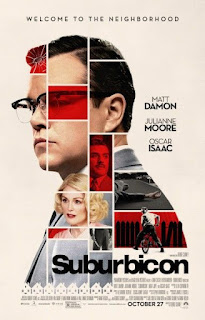
The Suburbicon script was originally was originally written by the Coen brothers back in the late 1980s. Clooney tweaked it, politicised it; folding it in with a project he was developing about a true-life crime in Levittown, Pennsylvania. Matt Damon plays Gardner Lodge, one of Cold War milquetoast men, so underwritten that not even the actor seems to figure him out. At some point we twig that this is a movie about an insurance scam gone awry, featuring a cash-strapped husband who buckles under pressure. Audiences will likely be disappointed by the surprisingly dark character arc that Damon and the film’s script delivers. There’s little-to-no change in Damon’s character over the course of the film, which are particularly disappointing and weak points. It’s no spoiler to reveal that there’s no Hollywood happy ending for the good people of Suburbicon. A film’s character is its fate, after all, and it is clear from the outset that the whole town is damned. Clooney’s film is here on a mission to tear down the facade and reveal the American horror within. It wants us to rejoice in the destruction; to sit back and laugh as the bonfire burns.
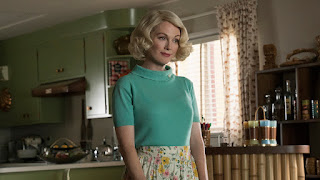
Julianne Moore gives a perfectly judged comic performance as a Barbara Stanwyck-like femme fatale, whose only drawback is that she is so utterly dimwitted. Damon is increasingly creepy and downright chilling as the repressed family man whose handsome features seem almost putrefied with self-loathing and who dreams of living on the beach in Aruba. Matt Damon shared he had resorted to "spanking" himself to make a scene with Julianne Moore look more believable in 'Suburbicon'. Damon revealed: "We had a good ping pong scene together. That was not dull at all. I actually bruised myself. Like, we realised the way the shot was, it looked like I was hitting her if I hit myself. And so I really was spanking myself." Clooney wants to both indulge and critique the vile, amoral stupidity of his characters, to draw us into a moral dead zone that might prove eye-opening. But it would require a filmmaker of either greater intellectual distance or tonal finesse to illuminate the toxic, ever-present legacy of white supremacy rather than merely restaging it, or to turn this kind of cut-rate misanthropy into art. Source: latimes.com

Matt Damon said about Suburbicon's message: “A lot of us are angry—angry at ourselves, angry at the way the country is going, and angry at the way the world is going". In review-aggregator website Rotten Tomatoes, Suburbicon has just an approval rating of 28%. Some of the nicest thing the negative reviews had to say about this misfire: "Suburbicon is not only unfunny, a bad sign for a black comedy, but deep-dyed dislikable. It’s the disastrous result of exhuming an old unproduced Coen brothers script about murder and perversity, then combining the film noir material with a facile denunciation of white racism in 1950s suburbia. These two plot elements have no organic connection with one another, though they do share a tone that manages to be simultaneously lurid, self-congratulatory, loftily scornful and utterly lifeless. Clooney's film eschews basic logic and didn't elicit enough laughs." —Wall Street Journal

"This startling misfire is a tonal disaster from start to finish. Part of the tonal problem here is one of deeply unlikable characters, something that the Coens excel at but other directors, even collaborators of theirs, have difficulty managing. The toggling between Depraved White Rot (Damon’s Lodge and his sister-in-law Maggie, played by Julianne Moore, having concocted a staggeringly crass murder scheme) and the dignity of the black family being subjected to all manner of torment often feels rather arbitrary. Even the great Robert Elswit’s cinematography work here feels uninspired. Of course, it all comes back to the flaws of a director unable to figure out how to convey the story in an interesting way. Suburbicon is shockingly unfunny, mostly due to the leaden, shapeless direction of it all but also due to the stilted performances from Damon and Moore that never seem to coalesce in tone or character. They’re lifeless. Maybe purposefully? As a commentary on dull white middle America? That’s possible, but not entertaining in any way." —RogerEbert.com












